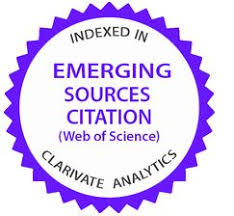Shareholder’s Political Motives and Corporate Tax Avoidance
Abstract
This paper describes the relationship between shareholder’s political motive and corporate tax avoidance using the Fraud-Risk Theory framework. Many corporate shareholders around the world actively participated in their country’s political arena, either as politicians or as donors to political parties. In order to maintain their political activities, they need easy, cheap and large sources of funds. One of the possible sources of funds is the undisbursed income tax payment to the government. However, this predicament has aroused the suspicion of taxation authorities on the extent of shareholder’s corporate tax compliance. Since corporate tax avoidance and shareholder’s political motives are attached to two different entities (corporations and individuals), it is not possible to measure the direct relationship between the variables. However, in this case the relationship will be partially measured. The first part measures the relationship between corporate ownership and corporate tax avoidance, and the second part measures the relationship between shareholder’s political motive and his ownership in the corporation. Results from multivariate data analysis show that there are significant relationships between variables in both partial relationships. Therefore, this study concludes that shareholder’s political motive is negatively related to corporate tax compliance level, and shareholder’s political motive is considered as factor that has significant negative influence on corporate tax avoidance’s decision.
Keywords
Full Text:
PDFDOI: http://dx.doi.org/10.17576/ajag-2015-6-7229
Refbacks
- There are currently no refbacks.
This journal is indexed by:


![]()
![]()
![]()
ISSN : 2180-3838
e-ISSN : 2716-6060
